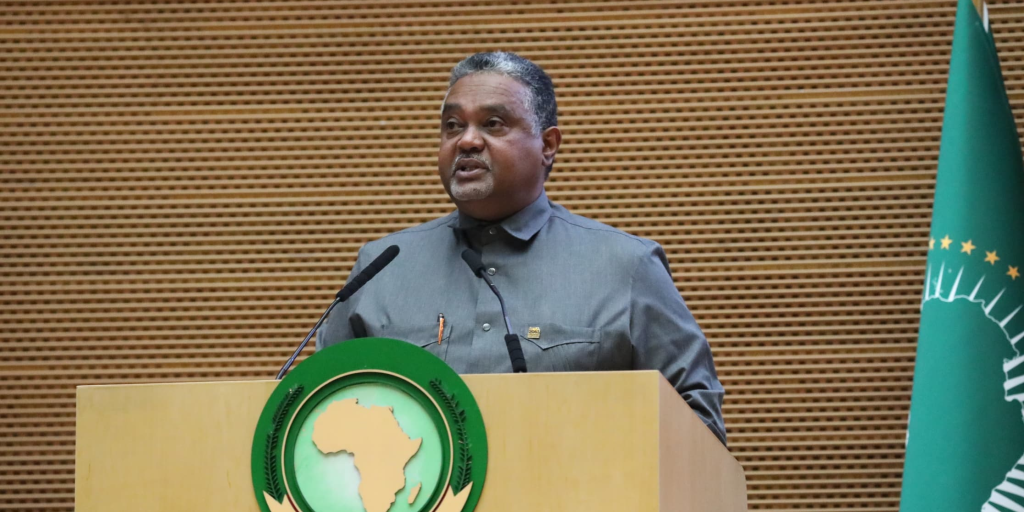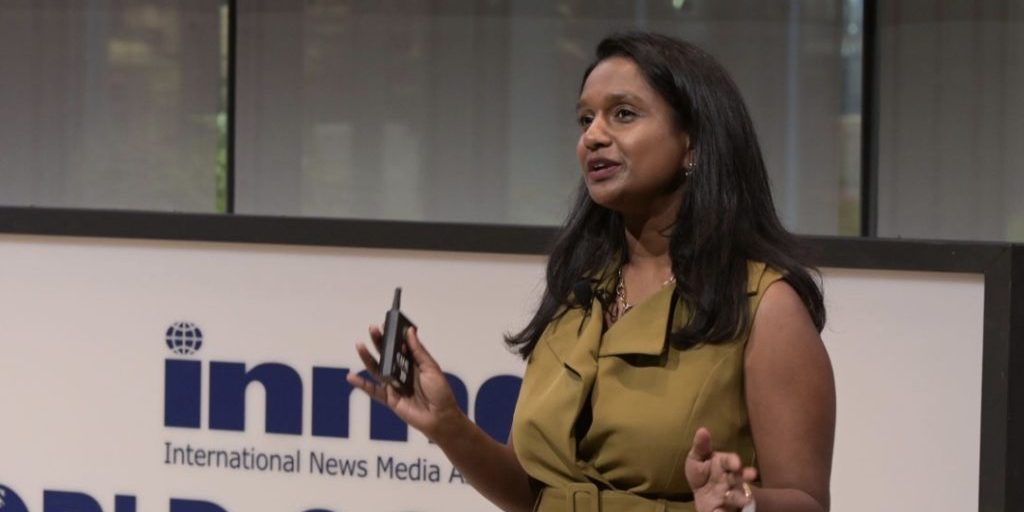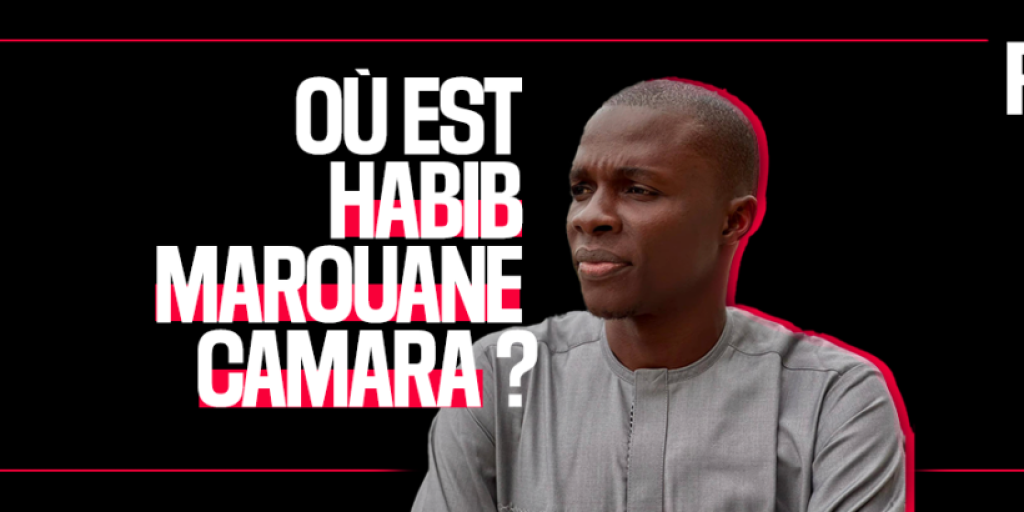‘Zones of silence emerge where journalists cannot report freely’ – AU Commission
Africa, Press Freedom, Updates
PICTURE: Ambassador Salah S Hammad, Senior Human Rights Expert of the Department of Political Affairs of the African Union Commission
Keynote statement by H.E. Ambassador Bankole Adeoye, Commissioner for Political Affairs, Peace and Security at the African Union Commission, delivered by Ambassador Salah Hammad at the 10th global conference for the commemoration of the International Day to End Impunity for Crimes Against Journalists (IDEI), Addis Ababa, Ethiopia, 6 November 2024.
On behalf of H.E. the Chairperson of the African Union Commission, H.E. the Deputy Chairperson of the African Union Commission, and H.E. the AU Commissioner for Political Affairs, Peace and Security, I am greatly honoured to welcome you all to the African Union Commission and in particular, the Hall of the Great Nelson Mandela.
I also wish to thank you all for joining today’s 10th Global Conference for the Commemoration of the International Day to End Impunity for Crimes Against Journalists (IDEI) taking place in this great city of Addis Ababa, the African political capital.
Allow me to seize this opportunity to express our sincere gratitude to UNESCO for collaborating with the African Union Commission in organizing this global Conference.
Special thanks go to H.E. Mr. Tawfik Jelassi, UNESCO Assistant Director-General for Communication and Information, for facilitating the selection of Africa to host this 10th IDEI Commemoration.
As we reflect on this day, we are reminded of the journalists’ critical role in upholding the pillars of democracy, human rights and the rule of law. Yet, it is disheartening that these individuals who are tasked with widely informing the world about socio-economic and political developments, and sometimes about uncomfortable facts, often pay a high price for their bravery – with their lives.
This year’s commemoration theme, ‘Safety of Journalists in Crises and Emergencies’, is especially timely.
Like many other regions, Africa continues to witness numerous conflicts, political instability, and humanitarian emergencies exacerbated by environmental crises. In these contexts, journalists become targets not only of violence but also of the insidious forces of censorship, intimidation, and disinformation.
The African Union has long recognised journalists’ indispensable role in maintaining peace, democracy, and transparency.
At the heart of our commitment lies the African Charter on Human and Peoples’ Rights, adopted in 1981, a foundational document that unequivocally guarantees the right to freedom of expression and access to information under Article 9.
This right is not negotiable; it is the bedrock of every free and just society. Without the ability to seek and disseminate information freely, the public is denied access to facts, and democracy falters, for as we all know, an uninformed citizenry is a danger to democracy
In recent years, the AU has made significant strides in strengthening the legal protections for journalists across Africa. The 2019 Declaration of Principles on Freedom of Expression and Access to Information in Africa builds upon earlier frameworks to underscore the commitment of AU Member States to safeguard journalists, particularly in times of conflict and emergency.
Principle 20 of this Declaration states clearly, ‘States shall protect, and the armed forces shall respect the status of journalists as non-combatants in accordance with international humanitarian law.’
Yet, despite this, violations persist.
The statistics are alarming. According to UNESCO’s Observatory of Killed Journalists, the number of journalists killed in conflict-affected countries in Africa has been steadily rising.
Between 2023 and 2024, at least 14 journalists were killed, the majority while reporting in conflict zones. Many more face other forms of violence, including kidnapping, enforced disappearance, and arbitrary detention.
For instance, Reporters Without Borders (RSF) reports that 32 journalists have been detained in African countries experiencing conflict, and 14 journalists have been kidnapped.
These figures paint a grim picture of the perilous landscape within which media professionals operate.
Impunity for crimes against journalists has become one of the most significant barriers to their protection. These crimes go unpunished and without accountability, creating a climate of fear and censorship that undermines press freedom.
The Resolution on the Safety of Journalists and Media Practitioners in Africa (ACHPR/Res.362), adopted by the African Commission on Human and Peoples’ Rights in 2016, acknowledges this pressing issue and calls upon Member States to establish national mechanisms for monitoring and protecting the safety of journalists.
It emphasises the need for governments to take proactive measures to prevent attacks on journalists and, more importantly, to hold perpetrators accountable.
Impunity is not just a failure of justice; it is an invitation for further violence. As we have seen, zones of silence emerge in crisis situations where journalists are unable to report freely due to threats, attacks or harassment. These zones hinder the flow of critical information, which is often essential for saving lives, facilitating humanitarian efforts, and fostering peace
The African Union’s Agenda 2063, particularly Aspiration 3, envisions an Africa characterised by good governance, democracy, respect for human rights and the rule of law.
For this aspiration to be realised, free and independent media must be protected. Journalists serve as the guardians of accountability, transparency, and justice. Without their courageous efforts, many of the injustices occurring in conflict zones would remain hidden.
The AU has also taken steps to institutionalise the protection of journalists through the Special Rapporteur on Freedom of Expression and Access to Information mandate, established in 2004 under the African Commission on Human and Peoples’ Rights.
This office serves as an essential mechanism for monitoring violations, reporting on the state of press freedom across the continent and providing recommendations for improving the protection of journalists.
The Special Rapporteur also plays a critical role in engaging Member States to adopt more robust legal and policy measures to safeguard journalists, especially in crisis zones.
Moreover, the African Union has aligned its efforts with global frameworks, particularly the UN Plan of Action on the Safety of Journalists and the Issue of Impunity, which is now in its second decade of implementation.
IDEI 2024 is an opportunity to reinforce the AU’s collaboration with UNESCO as part of the Inter-Governmental Organisations (IGO) Light Touch Task Force on the Safety of Journalists and other international partners.
This partnership is critical for addressing the challenges that journalists are faced with, and advancing regional mechanisms that can offer meaningful protection.
As we commemorate this day, it is also crucial to recognise the gendered dimensions of these threats. Women journalists face unique risks, particularly those reporting in conflict zones or covering sensitive issues such as human rights or climate change.
Gender-based violence, harassment and online attacks disproportionately affect women media workers. The AU remains committed to addressing these issues, as reflected in its broader human rights frameworks and collaboration with initiatives such as the 16 Days of Activism against Gender-Based Violence.
Finally, while progress has been made, the challenges remain immense.
We must do more to strengthen national safety mechanisms, ensure accountability for crimes against journalists, and end impunity in line with the recommendations of the 1230th Meeting of the Peace and Security Council held on 2 September 2024 on the Protection of Journalists and Access to Information in Situations of Armed Conflicts in Africa.
In this regard, the African Union, in collaboration with UNESCO, is launching key initiatives at this year’s commemoration, such as the Global Repository of National Safety Mechanisms for Journalists. This repository will be vital for Member States and stakeholders in establishing effective safety measures for journalists operating in dangerous contexts.
In conclusion, let us leave today with a renewed commitment to the safety of journalists, to the free flow and access to information, a fundamental human right. Protecting journalists is not conditional; it is necessary for peace, democracy, and justice.
As former President Nelson Mandela said, ‘A critical, independent and investigative press is the lifeblood of any democracy’.
I thank you.
- This address was first published here




